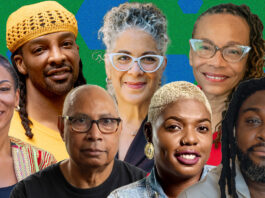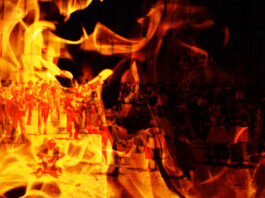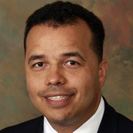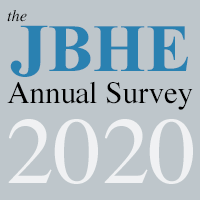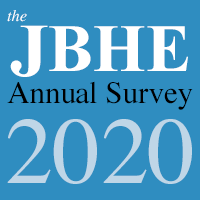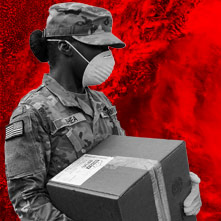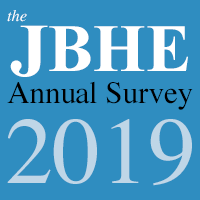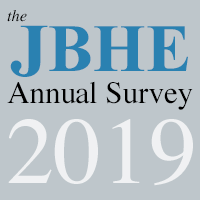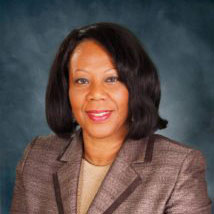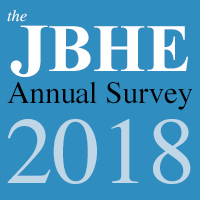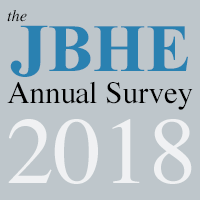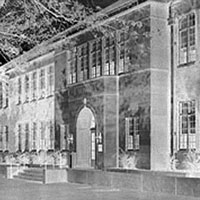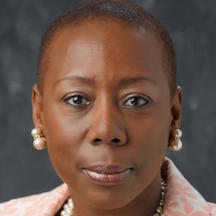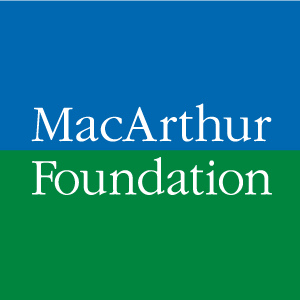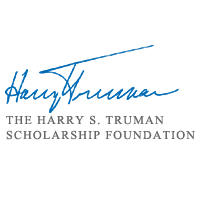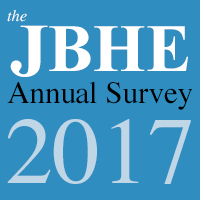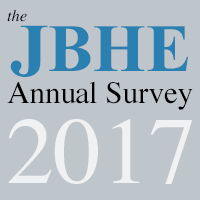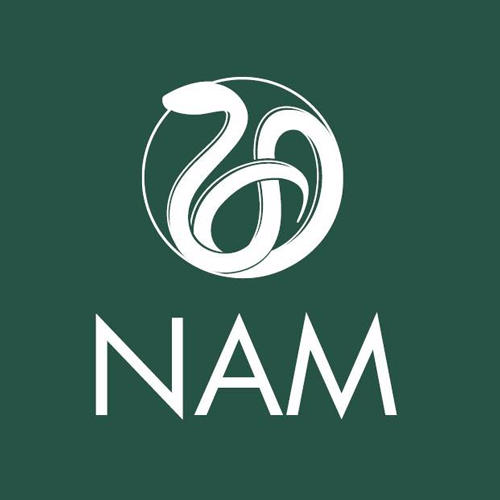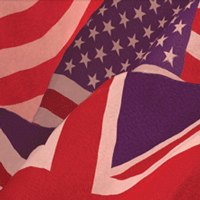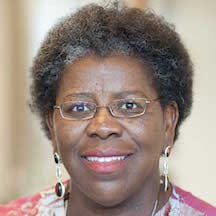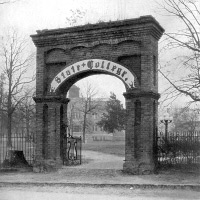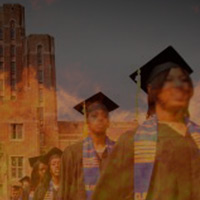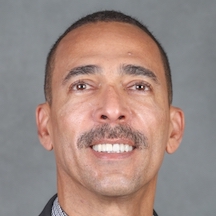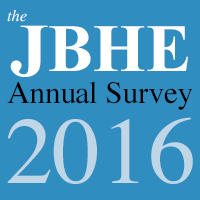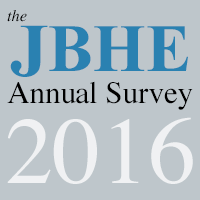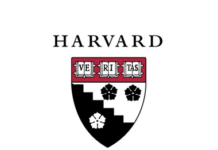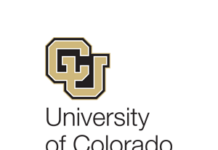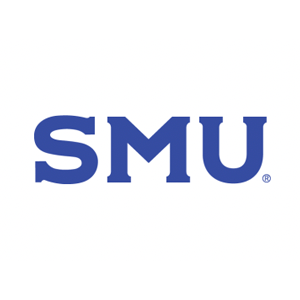For the Sake of Racial Justice and Equity, Time to Eliminate Standardized Testing
Racial & ethnic differences in performance on standardized exams are irrefutable. Yet, standardized exams continue to be used in admissions & scholarship decisions across every stratum of postsecondary education.
The Rise, Collapse, and Legacy: HBCU Football and the NFL Draft
Currently, nearly 10 percent of Black players in the National Football League Hall of Fame are alumni of HBCUs. That percentage will inevitably decline, but that history, too, cannot be erased. HBCUs were in the vortex of the racial transformation of the NFL.
Black First-Year Students at the Nation’s Leading Liberal Arts Colleges
In 2009, only three of the nation’s high-ranking liberal arts colleges had entering classes that were at least 10 percent Black. This year, despite the pandemic, there are eight leading liberal arts colleges that have an entering class that is at least 10 percent Black.
Black First-Year Students at the Nation’s Leading Research Universities
In 2004, only two of the nation’s highest-ranked universities had incoming classes that were more than 10 percent Black. This year there are 16 with an entering class that is more than 10 percent Black.
Four African Americans Named Mitchell Scholars
The US-Ireland Alliance recently announced the 12 members of the George J. Mitchell Scholar Class of 2022. Four of the 12 Mitchell Scholars this year are African Americans.
Ten African Americans Are Among This Year’s 32 Rhodes Scholars From the United States
This year, 10 African Americans were chosen as Rhodes Scholars. In 2017, there were also 10 African American Rhodes Scholars. This is the most in any one year in the history of the scholarship.
HBCUs Should Lead the Way in Disaster Preparedness in Their Communities
Most of the nation's 104 historically Black colleges and universities are in southern states, and many of the HBCUs in these states are located in, or close to, poor-resourced communities with high housing density. These locations are prone to intense flooding, hurricanes, drought, and other natural disasters.
The New African American Members of the American Philosophical Society
This year 28 Americans were elected to the American Philosophical Society. Six of the new members are African Americans.
COVID-19 Will Force HBCUs to Revamp Their Business Models
Professors Al-Tony Gilmore and Walter C. Farrell Jr., both alumni of HBCUs, offer their views on how the global pandemic will impact the bottom lines of the nation's historically Black colleges and universities.
RIP George Floyd
Rest In Power ... click through to #BLM
How Black Colleges Must Prepare Now for the Coming Enrollment Bust
Professor Terrell L. Strayhorn looks at how the projected significant drop in college enrollments will impact the nation's historically Black colleges and universities.
Black First-Year Students at the Nation’s Leading Research Universities
After requesting data on Black student acceptance rates from 29 leading universities this year, we received data from only nine schools. When JBHE began collecting this data in the early 1990s, almost all high-ranking universities complied with our request for data on Black student acceptance rates.
Black First-Year Students at the Nation’s Leading Liberal Arts Colleges
This year, Amherst College once again sits on top of the survey. There are 81 Black students in this year's entering class. They make up 17.2 percent of the first-year class.
Anti-Blackness in American Higher Education
Bakari Lumumba details how African American student college opportunities continue to be limited by structural disadvantages and systematic racism and how to contest them.
Hate Crimes on College Campuses and in Higher Education Spaces
Today’s college students of color are demanding safety, protection and accountability from their schools, administrators, politicians, and the country.
Four Black Women Among This Year’s 32 Rhodes Scholars From the U.S.
This year, four African Americans - all women - were chosen as Rhodes Scholars. Last year, there were three African Americans among the 32 scholars chosen from the U.S.
Black First-Year Students at the Nation’s Leading Research Universities
In 2004, only two of the nation’s highest-ranked universities had incoming classes that were more than 10 percent Black. This year there are seventeen with an entering class that is more than 10 percent Black.
Black First-Year Students at the Nation’s Leading Liberal Arts Colleges
We note that there appears to be a greater reluctance to divulge information about Black student acceptance rates. The recent litigation involving the admissions practices of Harvard University concerning Asian American students appears to have struck a nerve in higher education circles.
Bringing Brown v. Board of Education Out of Retirement
In 1954, a unanimous Supreme Court in the case Brown v. Board of Education called for the desegregation of public schools that were segregated as a matter of law. But Brown never became all that it could be.
Homeland Security & Emergency Management Studies: Where Are the HBCUs?
A well-trained, culturally diverse workforce, representing the breadth of racial and ethnic diversity, is needed to plan for, then deal with disasters and provide assistance after they occur.
One Quarter of the Latest Cohort of MacArthur Fellows Are Black
Of the latest cohort of 24 MacArthur fellows, it appears that six are Black. Three currently hold academic posts at colleges or universities.
Ten Black Students Selected as Truman Scholars
While the Truman Foundation does not provide data on the racial or ethnic make up of its Truman Scholars, after an analysis by JBHE, it appears that 10 of the 59 Truman Scholars this year are Black.
Black First-Year Students at the Nation’s Leading Research Universities
Over the past 25 years, the nation's highest-ranked research universities have made significant progress on the admission of Black students in their entering classes.
Black First-Year Students at the Nation’s Leading Liberal Arts Colleges
After a string of three first-place finishes, Amherst College dropped to second place in JBHE's 2016 survey of Black students in entering classes at the leading liberal arts college. This year Amherst is back on top.
Seven Black Scholars in the Latest Cohort of New Members of the National Academy...
An analysis of the list of the 70 members of the latest cohort elected into the National Academy of Medicine by JBHE finds that seven, or 10 percent, are Black.
Four African Americans Win Marshall Scholarships
The four African Americans among the 43 Marshall Scholars this year are in sharp contrast to the record of 10 African Americans who were among the 32 American students awarded Rhodes Scholarships this fall.
Ten African Americans Selected as Rhodes Scholars
In the past, the Rhodes Trust did not disclose the race or ethnicity of the scholars selected. But this year the Rhodes Trust stated in its press release that there were "10 African-Americans, the most ever elected in a U.S. Rhodes class."
Embracing our First Responder Role as Academics – With Inspiration From Langston Hughes
Amid a slew of American crises, academics who want to further equality in the land have a very critical and continuing role as first responders.
Turning the Tide of Segregation: The Legacy of the Law School at South...
During the Jim Crow era, southern states established segregated graduate and professional schools so that they would not have to admit Blacks to predominantly White educational institutions.
Eight African Americans Named Truman Scholars
While the Truman Foundation does not release data on the racial and ethnic make up of their scholars, an analysis of this year's class of 62 Truman Scholars, concludes that it appears that eight are African Americans.
Academic Hunger Games: HBCUs in a Fight for Survival
John M. Rudley, president emeritus of Texas Southern University in Houston, examines the current leadership crisis that is impacting many of the nation's historically Black colleges and universities.
Incoming Fire from All Directions: Microaggressions Faced by Students and Faculty of Color
Faculty of color must manage themselves, encourage their students and promote learning in sometimes less than ideal social climates.
Black First-Year Students at the Nation’s Leading Research Universities
In 2004, only two of the nation’s highest-ranked universities had incoming classes that were more than 10 percent Black. This year there are nine. Five more have entering classes that are more than 9 percent Black.
Eight African Americans Elected to the National Academy of Medicine
An analysis of the list of the 70 new members of the National Academy of Medicine by JBHE finds that eight, or 11.4 percent, are African Americans.
Black First-Year Students at the Nation’s Leading Liberal Arts Colleges
For the first time in the history of our survey, Pomona College in Claremont, California, has the highest percentage of Black students in this year's entering classes at the nation's leading liberal arts colleges.
When Giving Advice to African American College Students
Dr. Lillian Williams of Columbia College Chicago explores the factors that led to the success of graduating journalism students of color.



